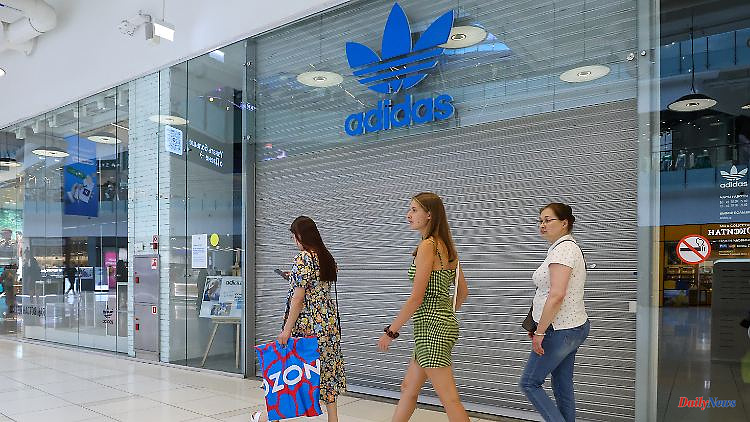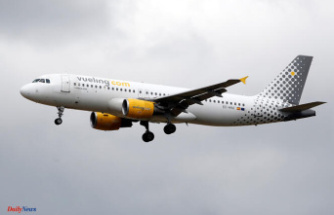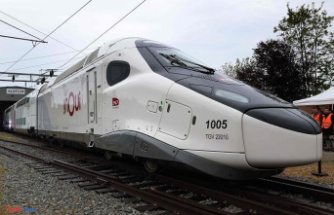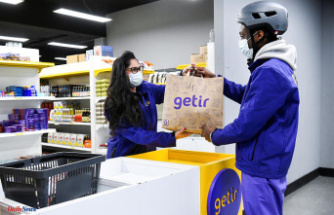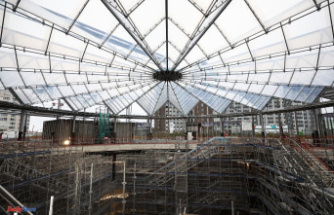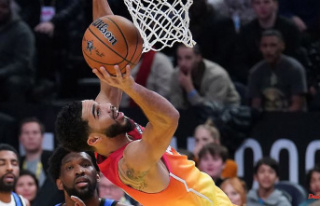In Moscow, the Russian war in Ukraine is initially hardly noticeable. But the sanctions are now taking effect, and the middle class in particular is suffering more and more from rising prices and the declines in many sectors. "The market is dead," reports a former real estate agent.
A year after the start of the war of aggression against Ukraine, people in Russia are increasingly noticing the consequences when they do their own shopping. According to the Russian Retail Association, Russians bought five percent less groceries in 2022 than the year before. This is also confirmed by a survey by the state opinion research institute WZIOM, in which 35 percent of those surveyed stated that they had to limit themselves when buying groceries.
At the Paveletskaya Plaza shopping center at Moscow's Paveletsky Train Station, things are more leisurely on Valentine's Day. Only a few customers cavort in the restaurants and shops of the multi-storey new building. Despite the sanctions, not everything is gone. Among the brand stores, in addition to the clothing store Lacoste, there is also an Apple shop and a Samsung store. Both shops offer the full range, although the companies announced their withdrawal from Russia last spring.
Gray import works particularly well with computer technology. Russian media recently reported that after initial import problems, more than a million notebooks are now piling up in warehouses - and sellers are now being forced to dump sales to get rid of them.
In the case of some other branded goods, too, the sanctions have been circumvented without any problems - often with the involvement of Turkish companies. Under the company logo Sneaker Box, Reebok shoes are offered in "Paveletskaya Plaza". Admittedly, the Adidas store next door is closed. Like many other corporations, the sporting goods manufacturer from Herzogenaurach has withdrawn from the Russian market. This also applies to Hugo Boss, H
In many areas, copies have replaced the original. Instead of Coca-Cola there is now Dobry-Cola, instead of MacDonalds the Russian own brand Vkusno i Totschka. In the case of tools, after the withdrawal of Bosch and Makita, low-quality Chinese imitations have flooded the Russian market.
The prices, on the other hand, have risen significantly. Inflation was officially 12 percent in 2022, but Russian finance expert Maxim Kvasha believes it was higher. More expensive and higher quality goods have been replaced by cheap products in the calculation, he says.
Poorer selection at higher prices - this is how the economist Natalia Subarevich sees the situation of Russian consumers. "The urban educated middle class is suffering the most from this crisis," she says. While the groups with the lowest incomes have at least been relieved somewhat by pension increases and social assistance for low-income families, the middle class has to deal with inflation and falling real incomes themselves. Many sectors, from the timber, coal and steel industries to automobile manufacturing and the service sector, are struggling with significant declines, says Subarevich.
Juri is an example of the development. The 42-year-old was a real estate agent until the end of the year, but he hasn't sold anything for months. "The market is dead," he says. Now Juri earns his money as a taxi driver. "But if I really want to make a living from it, I have to drive 12 to 14 hours a day, that's impossible," he complains.
And further adversity is looming: the price brake for Russian oil put into effect by Western industrialized countries in December is having an effect. The price of oil from the Russian brand Urals is now traded at a discount of around 40 percent compared to the North Sea variety Brent and currently costs around 50 US dollars per barrel (159 liters). For the current year, the government has actually expected an average price of 70 dollars.
In January, the Russian budget therefore showed a record deficit of the equivalent of 23 billion euros. This already corresponds to 60 percent of the shortfall estimated for the year as a whole. Moscow is trying to stabilize the oil price with threats. "As previously stated, we will not sell any oil to those who directly or indirectly use the price cap principle. That is why Russia will voluntarily reduce its production by 500,000 barrels a day from March," Deputy Prime Minister Alexander Novak announced in mid-February. According to the daily newspaper Kommersant, however, this means a loss of revenue of 39 billion euros - and that, while the war of aggression against Ukraine is costing a larger three-digit million amount every day.
Most recently, the central bank had to sell some of its gold and currency reserves to cover the budget hole. The government is also thinking more and more loudly about asking entrepreneurs to pay. Officially, there has been talk of a "voluntary" levy for large corporations - of all things, excluding the oil and gas industry. But Kremlin spokesman Dmitry Peskov has already warned that "the interaction between the country's leadership and business, between government and business, is not a one-way street." New taxes are likely to further weaken the economy.
The fact that the International Monetary Fund (IMF) and World Bank have downgraded their recession forecasts for Russia is little consolation. Since the beginning of the war, the gross domestic product has no longer shown Russia's economic strength and ability to generate income for its citizens, says financial expert Kvasha. It merely shows the ability to continue to wage war. Because the armaments factories are becoming more and more important, they are the only ones in the country that operate at full capacity.

